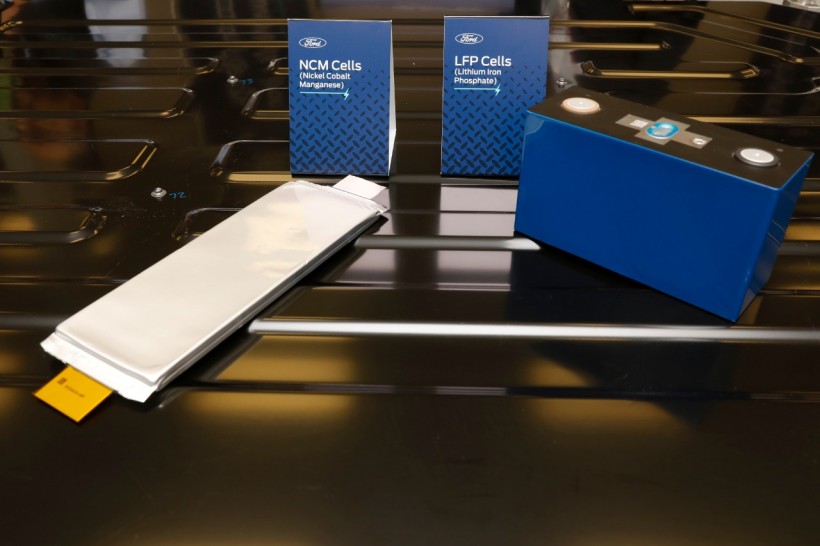Ford is yet again pausing another of its plants, particularly the EV Battery factory in Dearborn, Michigan best known for creating lithium iron phosphate batteries using the technology from China's CATL. This experimental LFP battery production is one massive change in Ford's EVs, especially as the previous models of its fully-electric lineup used the usual Li-Ion (lithium-ion) batteries.
LFP has been the renowned battery type that was regarded to be revolutionary for EVs, as not only would it feature a longer range and larger capacity, but it is also cheaper to manufacture.
Ford Pauses Production on EV Battery Plant in Michigan

(Photo : Ford)
TechCrunch reported that Ford has confirmed that it is pausing the production at its Dearborn, Michigan plant, a factory that is dedicated to developing its LFP batteries for EVs.
"We're pausing work and limiting spending on construction on the Marshall project until we're confident about our ability to competitively operate the plant," said Ford spokesperson TR Reid in an email to TechCrunch.
The manufacturing plant was only unveiled earlier this February, with the company unveiling its massive $3.5 billion investment to create the new battery technology. The BlueOval Battery Park Michigan has provided massive opportunities by offering as many as 2,500 jobs in the area, with it being unclear if it would only see a temporary halt or be gone for good.
Ford and China's CATL for LFP EV Batteries
The new battery chemistry, LFP, was made using the services of China's CATL, with Ford in charge of the production over in Michigan. It is meant to bring better durability, performance, fast charging, and more to the company's electric vehicles.
Ford's LFP would be first applied to the Mustang Mach-E this year, but it may not be arriving in time for the EVs.
Ford's Production and Battery
Earlier this March, Ford saw a significant problem with its F-150 Lightning EVs, as user reports claimed the pickup truck had battery defects that caused fire. It was one massive problem for the company, with Ford issuing recalls to current owners of the F-150 Lightning to fix the problem, caused by improper manufacturing by its supplier, South Korea's SK ON.
In August, it resumed operations after a six-week stop in its production of the F-150 Lightning, arguably one of the company's top electric vehicles in the lineup. As the company resumed, it saw a high volume of orders already, and this was after Ford's July announcement that reduced the prices for its brand-new electric pickup truck, soon to roll out its creations.
Now, Ford is seeing another stop in its production in its Dearborn plant, centering on its battery production which uses CATL's technology to deliver the LFP batteries, its next-gen creations. Ford's reason centers on its ability to operate the plant, considering that LFP power cell developments are fairly new in the industry, and is unknown if it would be only temporary or for good.
Related Article: Ford, BMW, and Honda Form ChargeScape to Revolutionize EV Charging










